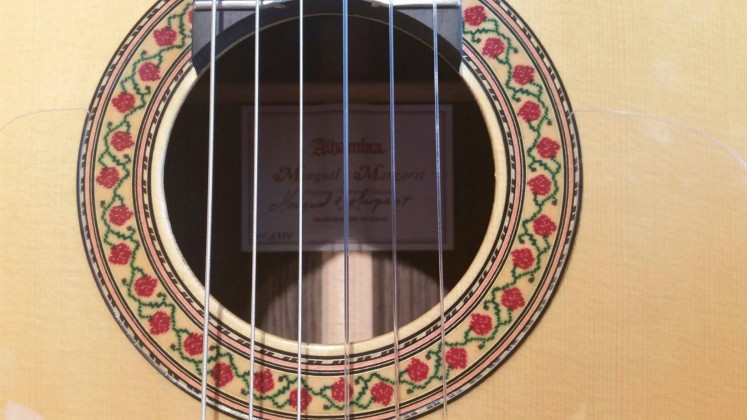The History of the Classical Guitar
The first “guitar” was very popular and it was made with 4 pairs of strings, a round shape in the front and a pear shape at the back
The history of the classical guitar starts much earlier than you may expect… In the old East, 1900-1800 BC. In excavations of Babylon, clay tablets have been found with musical illustrations, nude figures with large rotund bodies and extended necks play stringed instruments. In Roman times instruments not dissimilar to the modern guitar were made of wood and strings, on their surface 5 groups of holes can be seen. In the 16th century, the roots of the modern classical guitar begin to take root thanks to the cross-pollination of Muslim and Christian cultures.
The first instruments were made with 4 pairs of strings, a round shape and a body that bellowed out at the back in a pear shape. The guitar became very popular with the general population and was an integral part of any village dance or social occasion. The more elite part of society preferred the refined sound of the vihuela, and the instrument to be played when in the presence of royalty at court was the lute.
The poet Vicente Espinel is considered to be the inventor of what is recognized as the classical guitar, but it was the Catalunian Joan Carles Amat who wrote the ‘cinco órdenes’ and helped the guitar to become popular all over Europe. The guitar became extremely popular in the baroque period, in the 18th Century the 6th string was added.
During the 19th Century the guitar became a recognized virtuoso instrument to be played at grand galas and concerts. Many stars and ‘maestros’ were born such as Fernando Sor y Dionisio Aguado. Outside of Spain composers such as Paganini and Schubert were passionate about the instrument and its wonderful sound.
Interestingly enough, the Spanish and Classical guitar arrived in the new world at the hands of an Austrian and not a Spaniard, Christian Frederick Martin is credited with introducing the classical guitar to South America. As the guitarists grew in fame so do did the Artisanal masters who hand crafted these pieces of art, Antonio de Torres was one of the fathers of the new generation of contemporary style guitars.
If there is one figure that stands out in this period as a fundamental shaper of the classical guitar sound it is Francisco Tárrega who composed "Capricho árabe".
All of this led to the Golden age of the Spanish Guitar. Renowned musicians such as Manuel de Falla, Joaquín Turina, Federico Moreno Torroba and Joaquín Rodrigo composed solo pieces and symphonies with the guitar as the lead instrument. Alongside these greats were the luminaries Isaac Albéniz and Enrique Granados.
To complement the composers were the players keeping pace with the evolution of the art, Miguel Llobet laid out the basis for the modern technique and Andrés Segovia took the art to new exquisite heights and maturity. Regino Sainz de la Maza made essential contributions to the style of playing and Narciso Yepes added another string.
This is a very brief history of the evolution of the guitar, make sure you go online to find out more or explore our website for more posts about the world of the Spanish guitar.



